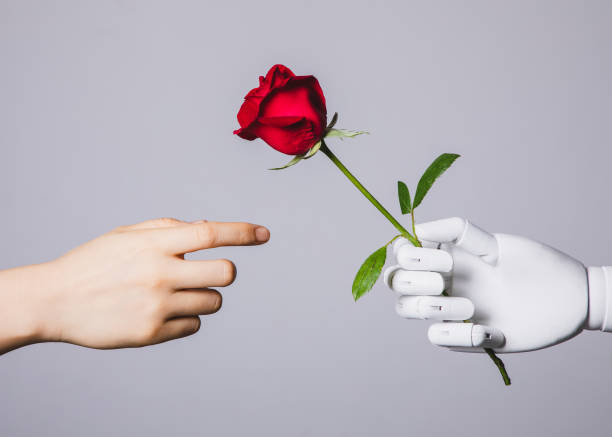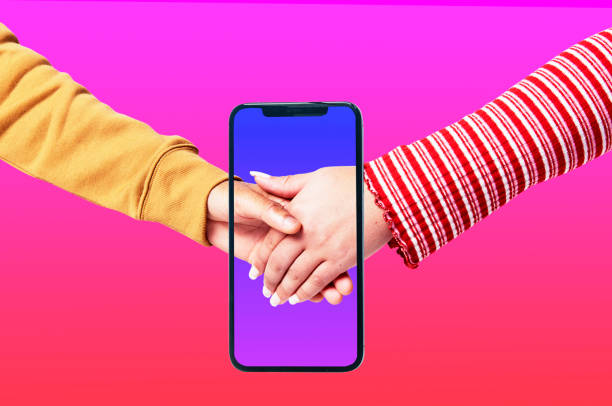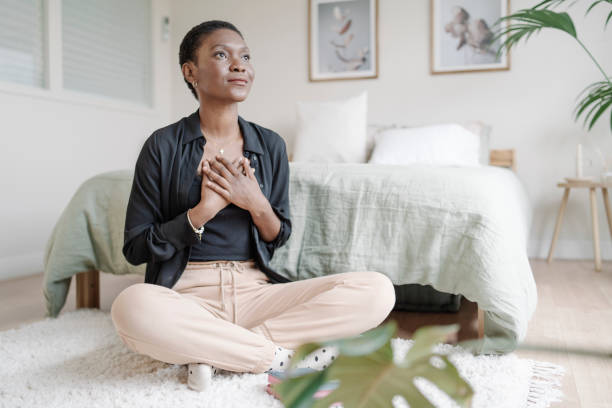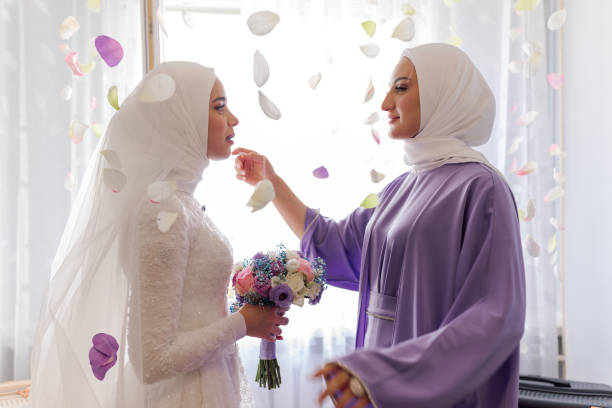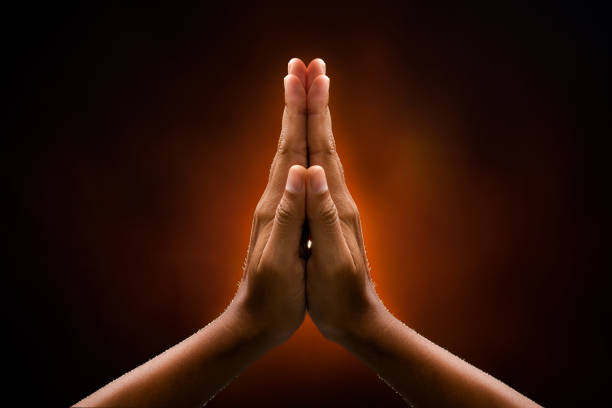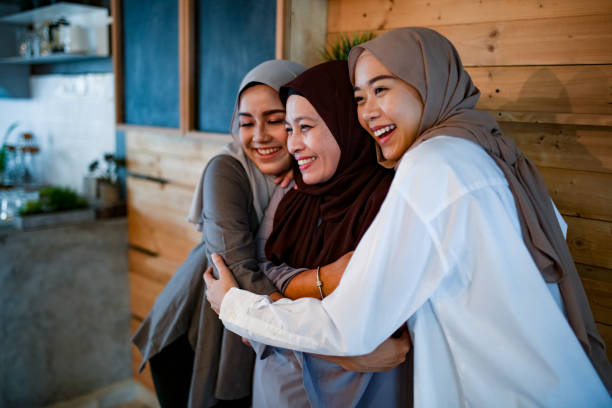Our blog
Discover insights and inspiration
Explore Relationship Advice, Dating Tips, Success Stories, and more.
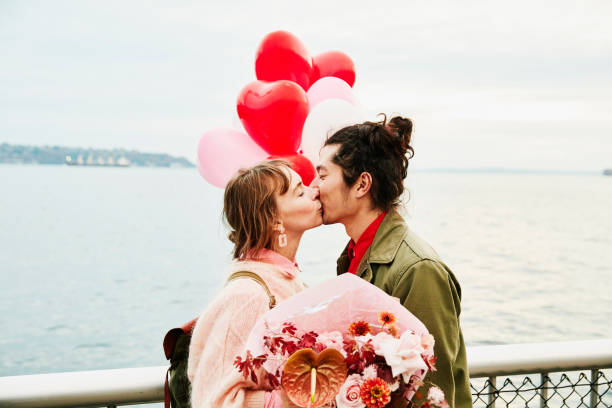
Blog
What Makes a Relationship Last: 9 Secrets of a Lasting Relationship
Everyone dreams of a love that lasts, the kind that does not only survive birthdays, job changes or stressful days but grows stronger with time. Lasting relationships are not built on magic. They are built on habits and choices that couples commit to daily.
Think of it this way. Love is the spark but habits are the fuel. Without fuel even the brightest spark will fade. So if you have ever asked yourself what makes a relationship last or how couples stay happy for years you are in the right place.
In this article you will discover 9 secrets of a lasting relationship. Each one is practical and relatable. These are not just quotes for social media but real steps you can use to keep your love alive.
Secret 1: Communication That Goes Beyond How Was Your Day
Small talk does not build strong connections. Lasting couples go deeper. They talk about dreams fears hopes and even random thoughts that only make sense to them.
The trick is to listen with the intent to understand not just to reply. If your partner shares a tough moment resist the urge to fix it immediately. Sometimes a simple reply like that sounds hard do you want to talk about it means more than a full list of solutions.
Some couples schedule time each week with no phones or distractions just to talk. It might feel small but this habit builds intimacy. When you feel heard you feel valued. And when you feel valued the bond grows stronger.
Pro tip. Ask deeper questions such as what made you smile today or what is on your mind lately. It is not about interrogation but about connection.
Secret 2: Respect The Foundation You Cannot Ignore
Respect is not flashy but it is the backbone of every lasting relationship. Love without respect quickly turns into tension and resentment.
Respect means valuing your partner as an individual. It shows up in little things. You let them finish speaking before you reply. You avoid insults even when you are angry. You support their goals even when they do not involve you directly.
When respect disappears fights get uglier silence grows longer and love feels weaker. But when respect is present even challenges are easier because you both know you are on the same team.
Secret 3: Keeping Romance Alive Even Years Later
Romance is not just for the early stage of dating. Yes butterflies fade but that does not mean romance should die. It simply evolves.
Real romance is consistency. It is the small gestures that say I am still choosing you. Bringing coffee to bed. Leaving a funny note on the fridge. Planning a surprise date night just because.
I once spoke with a couple married for three decades. When I asked their secret the wife laughed and said we still flirt in the grocery store. That is the point. Romance is playfulness. It is about keeping the spark alive in everyday life.
Secret 4: Fighting Fair Because Arguments Will Happen
Every couple argues. The difference is in how they handle it. Lasting couples do not fight to win. They fight to understand and resolve.
The rules of fighting fair are simple. Stick to the issue at hand. Use I feel instead of you always. Take a break if emotions are too high.
Some couples follow the rule of not going to bed angry. The point is not to rush a solution but to avoid sleeping with resentment. It prevents small issues from turning into bigger walls.
Remember arguments are not a sign that your relationship is failing. They are a chance to grow if you handle them with care.
Secret 5: Shared Goals and Individual Growth
Strong couples balance two things. Shared dreams and personal growth.
You need common goals like saving money buying a home or travelling together. But you also need space to grow individually. Your partner fell in love with your unique passion and drive. Losing that just to fit into us can lead to frustration.
Couples who last cheer each other on. They say yes take that class or yes go for that new job even if it means less time together. Growth keeps attraction alive.
So do not lose your individual self. At the same time nurture your shared dreams. This balance is what keeps love fresh and strong.
Secret 6: Trust The Quiet Glue That Holds It Together
Without trust a relationship cannot last. You can love someone deeply but without trust love feels heavy and unsafe.
Trust is not only about being faithful. It is also about reliability. Can I count on you to support me. Can I believe your words match your actions. Can I feel safe being vulnerable with you.
Trust takes time to build and only seconds to lose. Rebuilding it requires patience and transparency. But once it is secure it becomes the quiet glue that holds everything together.
Secret 7: Laughter The Secret Love Language
Laughter is underrated in relationships. Couples who laugh together stay closer. Humour softens conflict and makes ordinary moments memorable.
Inside jokes are proof of this. They are like a secret code that no one else understands. They remind you that your love is unique.
Pro tip. Keep playfulness alive. Watch comedies together. Dance in the kitchen. Share silly memes. Life is heavy enough. Your relationship should be a safe space for joy.
Secret 8: Intimacy Beyond the Bedroom
Intimacy is not just about sex. It is about closeness in every way. Emotional intimacy comes from sharing your fears and hopes. Physical intimacy is not only sex but also hugs and holding hands. Intellectual intimacy comes from discussing ideas and future plans. Experiential intimacy comes from doing new things together.
Couples who invest in all types of intimacy feel stronger. If intimacy becomes only physical it feels shallow. If it becomes only emotional passion fades. But when both are alive together love feels balanced and lasting.
Secret 9: Choosing Each Other Every Day
The biggest secret of all is choice. Love is not just a feeling. It is a decision you make every day.
There will be days you feel annoyed or distant. That does not mean your love is gone. It means you must choose again. Couples who last keep showing up. They keep saying I choose you even when it is not easy.
This daily choice is what separates temporary passion from lasting love.
FAQs About Lasting Relationships
Q. What is the number one key to a lasting relationship
Respect. Without it even love cannot survive.
Q. Do all relationships get boring over time
Not always. Butterflies may fade but deeper intimacy laughter and growth take their place.
Q. How do I know if my relationship will last
Look at how you both handle challenges. Do you communicate openly. Do you respect each other. Do you laugh often. Those are real signs.
Q. Can broken trust be fixed
Yes but it requires time consistency and honesty. Both partners must be willing to rebuild.
Conclusion The Real Secret to Lasting Love
Lasting love is not about finding the perfect partner. It is about building daily habits that keep love alive. Communication respect laughter trust growth intimacy and choice. These are the real secrets.
You do not need perfection. You only need willingness.
If you are looking for a place to meet people who value real connection and lasting love visit Tramatch.com. Start your journey to finding not just love but love that lasts.
Tramatch Admin
Sep 10, 2025

Blog
Psychological signs that reveal true love
Love is such a strange and beautiful thing isn’t it? One moment you are just living your regular life and the next you find yourself smiling at random times just because a certain someone popped into your head. But here is the big question that so many people struggle with. How do you really know if it is true love? Is there such a thing as clear psychological signs that reveal when love is genuine and not just infatuation or convenience?
The truth is yes. There are psychological patterns and behaviours that give us clues about whether what we are experiencing or what someone is showing us is authentic love. And here is the good news. You do not have to be a psychologist or relationship coach to notice these signs. You just need a little bit of awareness and reflection.
So in this article we are going to dive deep into the fascinating world of love psychology. We will break down the subtle but powerful signs that reveal true love. Think of it as your friendly guide to spotting the real deal in relationships. And because I know how overwhelming love and dating can get especially in this era of swipe right swipe left culture I will keep things casual conversational and filled with stories tips and relatable insights that you can actually use.
Grab a cup of coffee or tea settle in and let us explore what true love looks like from a psychological perspective.
Frequently Asked Questions about Psychological Signs of True Love
Since this is something many people are curious about I will weave the most asked questions into our discussion and give you detailed answers. So let us start with the very first one.
How Do You Know If Someone Truly Loves You
This question is probably the most common and honestly the most nerve wracking one. When you are in a relationship or even just starting out with someone you like it is natural to wonder Do they actually love me or are they just enjoying the moment.
Psychology says true hlove reveals itself in consistency. Anyone can buy you gifts or text you sweet nothings when things are good. But the real sign is how they treat you when life gets messy. Do they show up for you when you are stressed out or vulnerable? Do they still respect and care for you when you are not at your best?
Another sign is emotional investment. Someone who truly loves you is curious about your world. They want to know how your day went what your dreams are what scares you and what excites you. They are not just there for fun or physical attraction. They are invested in the whole of you.
Here is a tip. Pay attention to how you feel around them. Do you feel safe valued and seen? Or do you feel anxious confused and unsure. True love usually feels like calm. It may not always be butterflies in your stomach but it will bring peace in your heart.
What Are The Psychological Signs Of True Love
This is where it gets really interesting. Psychologists often say that true love can be spotted through a mix of behaviours emotions and long term patterns. Let us break this down.
Empathy and Emotional Attunement
When someone is in love with you they do not just hear your words they feel your emotions. If you are sad they notice even before you say a word. If you are excited they mirror your joy. This is called emotional attunement and it is one of the clearest signs of genuine love.Consistency in Actions Not Just Words
Anyone can say I love you. But do they act in ways that back it up? Do they keep promises respect your boundaries and show up when they say they will? Love shows up more in actions than in empty declarations.A Desire To Grow Together
True love is not stagnant. If someone loves you they want to grow with you. They encourage your personal goals and they also want to build something meaningful with you. That shared vision of the future is a psychological sign that love is authentic.Acceptance Of Your Flaws
Let us be honest. Nobody is perfect. If someone only loves you when you are flawless that is not love. But if they can see your quirks your imperfections even your annoying habits and still say You are my person then that is love.
I could go on and on here but the big takeaway is this. True love is less about grand gestures and more about consistent patterns that make you feel safe cherished and valued.
Can True Love Be Seen In Everyday Behaviour
Absolutely. And honestly this is one of the sweetest ways to recognise it. True love often hides in the little things. It is in the way they make you tea without asking because they know how you like it. It is in remembering details you forgot you even mentioned like your favourite childhood snack or a random goal you set.
Think about it. Love is not just fireworks and big dates. It is in the everyday moments. When they text to check if you got home safely. When they sit through your long rant about work even if they are tired. When they defend you in your absence. These everyday behaviours are actually stronger indicators of love than grand gestures because they reveal consistency.
So if you are wondering if what you share with someone is real watch the daily details. True love is often disguised as ordinary kindness repeated over and over again.
Is True Love The Same As Infatuation
This one deserves attention because so many people confuse the two. Infatuation is intense fast and thrilling. It feels like a roller coaster that gives you adrenaline but does not necessarily last. True love on the other hand is steady patient and deep.
Here is an easy way to tell the difference. Infatuation is about what you feel. True love is about what you give. When you are infatuated you are more focused on how the person makes you feel excited desired or validated. But when it is true love you shift your focus to their wellbeing their happiness their dreams.
One of the psychological signs of true love is that it matures over time. Infatuation often fades when reality sets in. True love becomes stronger when challenges arise because both people are willing to put in the work.
Do Men And Women Show Love Differently Psychologically
Yes but not always in the ways stereotypes suggest. Many people think men show love through providing and women show love through nurturing. While there may be some truth to traditional patterns psychology says love expression is deeply personal and not strictly gendered.
For example some men may express love through emotional openness while others may do so through consistent acts of service. Some women may express love through words while others prefer practical gestures. The key is not to assume but to notice.
Here is a tip. Instead of comparing how your partner shows love with what you think it should look like focus on the intention behind their actions. If they consistently make an effort to care for you even if their love language is different from yours that is a psychological sign of true love.
Can You Psychologically Trick Yourself Into Believing It Is Love
This is such a good question because yes it happens a lot. Our brains are wired to crave connection so sometimes we convince ourselves that what we feel is love when in reality it is loneliness comfort or habit.
Here is where reflection matters. Ask yourself Are they truly meeting my emotional needs or am I just afraid of being alone? Do I feel like myself in this relationship or am I constantly pretending?
When it is true love you will notice that your mental health improves not worsens. You will feel more confident more secure and more hopeful about life. If the relationship leaves you drained insecure or always second guessing yourself that is not true love no matter how much you want it to be.
How Long Does It Take To Know If Love Is Real
There is no one size fits all answer. For some couples it becomes clear within a few months. For others it takes years. But psychology suggests that time reveals truth. Early stages are often filled with excitement and idealisation. Only when life’s ups and downs show up can you really tell if love is genuine.
My advice is simple. Do not rush to label everything. Instead pay attention over time. How do they handle conflict? How do they react to your achievements or failures? Do they stay consistent even when things are tough? Time will reveal if it is love or just temporary attraction.
Conclusion
Love is beautiful but also complex. The good news is that psychology gives us a roadmap to spot the real thing. From emotional attunement to consistent actions from everyday kindness to shared growth the signs of true love are not as hidden as we sometimes think.
So the next time you find yourself wondering Is this true love? ask yourself these simple questions. Do I feel safe? Do I feel seen? Do I feel supported? If the answer is yes chances are you are experiencing something authentic.
And if you are still looking for that kind of love here is a little nudge. Why not try a platform that values real connection over superficial swipes. Sign up today at Tramatch.com and start building something meaningful with someone who is also ready for true love.
Because at the end of the day love should not just feel like butterflies. It should feel like home.
Tramatch Admin
Aug 18, 2025

Blog
How Can I Tell If My Feelings Are Genuine Love Or Just A Passing Phase
Love can be incredibly confusing. Sometimes, it hits you like a wave you never saw coming. You meet someone, and suddenly they’re all you think about. Your heart races when you see their name pop up on your phone. You catch yourself smiling at random moments just because you thought about them. You start imagining the two of you in the future maybe even before you know their middle name.
But here’s the tricky part: how do you know if this is genuine love or just a temporary high? Is it the beginning of a lifelong story, or is it just a chapter that will end sooner than you expect?
I have seen people get swept away in the thrill of new affection, only to find themselves lost when the excitement fades. I’ve also seen love that starts quietly and grows stronger with time, surprising even the people in it. The truth is, not every intense emotion is love. Sometimes, it’s infatuation. Sometimes, it’s boredom in disguise. And sometimes, it’s simply your brain enjoying the rush of attraction.
So, let’s break this down together. Think of me as your friend who’s been through the highs and lows, made the mistakes, learned the lessons, and is now here to walk you through how to figure out what you’re really feeling.
1. The Difference Between Butterflies and the Real Deal
Butterflies are exciting. That flutter in your stomach when you see them across the room, the way your palms get a little sweaty it’s thrilling. But butterflies aren’t the foundation of love. They’re the fireworks at the beginning of the show.
With infatuation, your attention is on how they make you feel in the moment. You’re intoxicated by the thrill. Every text feels like a win. Every conversation feels magical. But if you’re honest with yourself, you might realise you don’t know them that well. You might be in love with the idea of them, rather than the real person.
Genuine love, on the other hand, feels steadier. It’s not just about excitement; it’s also about peace. You don’t constantly wonder where you stand because they make it clear. You’re not relying on constant highs to feel connected. The bond is rooted in trust, not adrenaline.
Here’s a little test imagine you’re having one of your worst days. You are tired, irritable, and not in the mood to impress anyone. Would you still want them around? Would they still treat you with care, even when there’s no romance in the air? If the answer is yes, you’re leaning closer to love than to a passing crush.
https://prod-v2.tramatch.com/api/main/v2/images/6f02186785f630da9a705602db819d7b.jpg
2. Emotional Consistency, Why True Love Doesn’t Feel Like a Rollercoaster
Infatuation often feels like an emotional rollercoaster. One day, you are on cloud nine because they sent a sweet text. The next day, you’re anxious because they didn’t reply fast enough. Your mood rises and falls based entirely on their attention. It’s exciting at first, but exhausting in the long run.
Real love feels different. It’s more like a calm, scenic drive. Sure, there are bumps and turns, but nothing that throws you completely off balance. You feel safe because you know where you stand. You don’t have to fight for their attention or constantly prove your worth.
Ask yourself: do you feel grounded in the relationship, even on bad days? Can you trust that they’ll still be there tomorrow, even if you have an argument today? Consistency is one of love’s strongest signals. When someone loves you genuinely, they’re there through moods, misunderstandings, and ordinary days not just when it’s convenient or exciting.
One of the most freeing feelings is knowing you can be 100% yourself without worrying they’ll walk away. If you have that kind of stability, you’re not just passing time you are building something real.
3. The Role of Time, Can Your Feelings Survive the Honeymoon Fade?
Time is the ultimate truth-teller in relationships. In the beginning, everything feels magical. You’re discovering each other, laughing at every joke, and thinking you could spend every moment together. But eventually, the newness wears off.
In a passing phase, the excitement fades, and so does your interest. The quirks that were once “cute” might start to irritate you. Conversations feel repetitive. The physical attraction loses its intensity without the novelty to fuel it.
In genuine love, the feelings don’t vanish when the spark softens. They deepen. You start appreciating them as a whole person flaws and all. You don’t just enjoy the fun moments; you stick around during the hard ones. You don’t stay because it’s easy. You stay because they matter to you.
Here’s something you can try: take a little step back. Spend some time apart. See if you still feel the same pull toward them when they’re not right in front of you. If your connection stays strong despite space and time, it’s a good sign your feelings aren’t just a temporary rush.
4. How Deep Is Your Connection, Beyond Surface Attraction
Attraction matters, It’s part of what draws us to someone. But if attraction is the only glue holding you together, it won’t last.
In a passing phase, once the physical spark fades, there’s often not much left. You might realise that you don’t share the same values, interests, or life goals. You might not know how to comfort each other in difficult times because your bond is purely physical.
Real love thrives on emotional intimacy. It’s being able to share your fears, your weird little quirks, your wildest dreams without feeling judged. It’s laughing together over silly things. It’s being comfortable in silence, not needing constant entertainment to feel connected.
Ask yourself: do they know you not just your favourite outfit or your social media highlights, but the raw, unfiltered version? Do you know them in the same way? If your connection is built on more than attraction, you might be looking at the real thing.
5. The Life Test Can You See a Shared Future Without Forcing It?
When your feelings are genuine, you can picture them in your future and it doesn’t scare you. You imagine them in your daily routines, at family gatherings, or celebrating milestones with you. The thought feels natural, not pressured.
If it’s a passing phase, the idea of a future together might feel awkward or forced. You might avoid the topic or keep them separate from important parts of your life because, deep down, you are not sure they belong there.
True love doesn’t mean you’ve planned every detail of your life together. It just means you can see them as part of it whether that’s five months or five years down the road. And not just in the good times. You can picture handling challenges together and still wanting to be a team.
If you can imagine them beside you in the long run and it brings a sense of peace instead of panic, your feelings are probably real.
6. How They Affect Your Growth, Love vs. Obsession
Love should make you better, not smaller. In a healthy, loving relationship, you feel encouraged to pursue your goals and grow as a person. You have the space to be independent and still deeply connected.
In a passing phase, especially when obsession takes over, you might feel like your whole world revolves around them. You might let go of friendships, hobbies, or opportunities just to keep them close. That’s not love that’s dependency.
Ask yourself: do they celebrate your wins, even if it means you’re busy and less available? Do they respect your personal space? Do they inspire you to become better, or do they hold you back?
True love is a partnership. It’s not about control or possession. It’s about lifting each other up and supporting each other’s growth. If being with them helps you become a more confident, fulfilled version of yourself, it’s likely the real deal.
7. Listening to Your Gut, When Your Heart Already Knows
Sometimes, deep down, you already know the answer. Your instincts are powerful. If you constantly feel uneasy or unsure, something’s off. If you feel safe, valued, and understood, that’s worth listening to.
In a passing phase, you might ignore red flags because the excitement is too tempting. You might overlook signs that the connection isn’t healthy because you want the high to last.
In genuine love, your gut feels calm. You’re not happy every single moment no relationship is perfect but you feel secure even in the imperfect moments. You trust them. You are not constantly bracing yourself for disappointment.
Take a moment to be still and honest with yourself. Often, your heart already knows if what you’re feeling is love or just a temporary thrill.
Conclusion
Love is beautiful, but it’s not always what it seems at first. The rush of excitement is fun, but it doesn’t always last. What matters is what’s left after the initial spark fades.
Genuine love is consistent. It grows over time. It’s built on more than attraction. It survives bad days. It inspires growth. And it feels safe.
If you’ve realised you’re in a passing phase, that’s okay it’s part of learning what you want. But if you’ve spotted the signs of real love, hold onto it and keep building it.
So here’s my challenge to you: take a quiet moment today and ask yourself the hard questions. And then be brave enough to listen to the answer your heart is already whispering.
action.
Ready to find a real, lasting connection?
At Tramatch, we believe love isn’t just about chance it’s about finding someone who truly gets you. Join our community of genuine singles who are looking for more than just a fling.
Sign up today @Tramatch.com and start meeting people who match not just your profile, but your heart.
Tramatch Admin
Aug 12, 2025

Blog
Online Dating Rules That Actually Work For You and Your Peace of Mind
Picture this
You are curled up on the couch at 10 p.m. scrolling through your phone chatting with someone who lights you up but also creeps you out a little. You think, is this normal Should I be sharing this much this often That is exactly where online relationship boundaries come in. In a world where DMs video calls shared playlists and late night texts blur lines realizing where to draw them is key to keeping things healthy sane and even exciting.
You are not the only one asking when is it too much What is okay to share and how do I stop oversharing or under communicating In this article I will walk you through everything. I will answer your burning questions talk about the why and how and drop real life examples so you feel seen not judged. Stick around. By the end you will know exactly how to create boundaries that feel natural fair and really lift your online romance not kill it.
What are online relationship boundaries
Think of boundaries as invisible fences between your heart your time and your digital space. They are not about control they are about respect. With someone you care about online boundaries define
What you share and what stays private
How often you connect and when you need your own space
Platforms you are comfortable using and ones you are not
Topics you are okay with and ones that feel too heavy or invasive
In practice that could mean no texting after midnight unless it is urgent not exchanging passwords agreeing not to read each other's private messages and being clear on how when and what parts of your life you post about together. The goal is to keep affection alive and drama low.
You have to customise boundaries to your style. If you are someone who values independence maybe you prefer fewer short daily check ins. If you are all about constant connection maybe nightly video chats work. The key is mutual clarity knowing what both of you want setting expectations early and adjusting as you go.
Why they matter
Prevent burnout Talking all day every day can feel exhausting even in a new relationship. Boundaries let you breathe.
Keep privacy intact Not everything belongs online especially early on.
Build respect By sharing your needs you show self respect and earn theirs.
Prevent misunderstandings If you expect instant replies but they do not resentment builds fast. Boundaries let you talk about that calmly.
Why you need boundaries in online relationships
You might think boundaries sound stiff like you are telling the other person do not get too close. But actually they do the opposite they let you connect more fully just with structure.
The emotional rollercoaster of digital love
Boundaries act like guardrails in a fast relationship ride. They keep things safe and smooth so you can enjoy the thrill without crashing. Emotional stability comes when you both know this chat stays on WhatsApp that one stays off limits you reply when you are free not when you are forced.
Benefits at a glance
More trust
Healthier expectations
Less anxiety
Greater intimacy
Imagine you are in a long distance setup. He is in London she is in Lagos. Without boundaries time zones and routines cause friction. But with clear rules like we chat between 7 and 8 p.m. my time you can text later if needed both feel connected and respected.
Boundaries are not stifling they are the secret to making digital love sustainable.
How to establish online relationship boundaries from the start
Let us talk strategy not confrontation. Setting boundaries is not a rigid checklist. It is more like a casual talk where you both say here is how I roll and you can tell me how you roll too.
Step 1 Start early
If you are texting daily let them know your rhythm
Example I usually work until 6 p.m. so evenings are best for me I tune out after 10 p.m. to wind down
She might say Cool I sleep early I will catch you tomorrow
Boom expectations set
Step 2 Be transparent not harsh
Instead of saying “Do not text me during work” try
”Hey I am not big on constant texting during work” My focus slips can we catch up after.
Step 3 Ask open questions
What feels comfortable for you around check ins?
How often would you like to video call?
This makes it a shared conversation not just your own rules.
Step 4 Set platform specific rules
”I prefer WhatsApp over Instagram DMs”
”Let us not share passwords We will respect each other's privacy”
Imagine browsing someone’s old chats without asking that is not trust.
Step 5 Reinforce with kindness
If someone crosses a line say something like
”Hey quick note I noticed you texted after midnight I actually turn off notifications after 10 Can we keep late texts for emergencies?”
Make it about your need not about blame.
Step 6 Revisit and adjust
Relationships change Maybe you started with one message daily now it is three, Check in with them “Hey I am more comfortable chatting midday now, how about you?”
Let boundaries grow as the relationship grows.
I once dated someone who expected me to be available even weekends. I burned out fast. So I said Saturdays are recharge days for me. He respected that and our chats felt more relaxed after. Boundaries can help you both feel more alive not less.
Common questions about online relationship boundaries
How do you balance emotional intimacy and privacy online
You may want to share everything but it can be too much too soon. Try sharing in layers
Daily updates jokes memes
Weekend plans hopes and small worries
Deep insecurities and fears when trust is built
You would not play the heartbreak anthem on day two of dating right Start light let it deepen naturally.
Should you share passwords or live location
Most advice says no. Why
Because it feels like proof of trust but ends up creating control issues.
Live location might seem helpful but can become a form of tracking.
Better boundary Share location when needed not always. Check in with your words not surveillance.
How often should you communicate in an online relationship
No fixed rule, some text 20 times a day some just once or twice. The key is quality over quantity.
A thoughtful daily message is better than frantic hourly pings.
Figure out what works for both of you.
If she is a morning person and he is a night owl maybe good morning and good night texts work.
Use shared calendars or quick check ins to adjust the rhythm each week.
What if they ignore or push your boundaries
Time to talk not ghost.
Say something like When I do not hear back I feel anxious Can we agree on response times
If they ignore it again follow up gently I need this It matters for my peace of mind
If nothing changes that is a red flag.
Tips for maintaining healthy online boundaries
Tip 1 Create digital quiet hours
Pick a time when you both disconnect. No texts no calls.
Example I go offline 10 p.m. to 8 a.m. to rest and reset
You can adjust that but the idea is emotional breathing space.
Tip 2 Agree on your check in style
Maybe you both decide
Quick emoji updates for moods
Story time for how your day went
Deep dive if you need emotional support
This avoids mixed signals and builds clarity.
Tip 3 Decide what is public or private
Want to post pictures Tag each other,Ask first, No posting fights or private moments
Respect each other's digital boundaries too.
Tip 4 Use gentle cues to reset
If they seem distant ask kindly Is everything okay?
Need space? Just let me know.
This keeps the connection soft not tense
Tip 5 Practice digital self care
Mute notifications when resting
Limit social media scrolling
Do not stalk exes or spiral over likes and views
Protect your peace so your relationship can grow
Real world examples
Scenario 1 Over availability
I used to text a guy all day He expected replies 24 7 I felt trapped
So I said I am offline from 1 to 3 p.m. and after 10 p.m.
He agreed and the texts became more thoughtful and calm.
Scenario 2 Long distance miscommunication
She was in New York he was in Lagos She wanted daily FaceTime
He had bad WiFi They agreed on three calls per week and memes in between
That helped them stay connected without pressure.
Scenario 3 Privacy lines
A friend said her partner wanted to read her DMs She said no, she explained I need private space to feel safe, He respected that and their trust grew.
Quick Tips Recap
Set digital quiet hours
Agree on check in styles
Define what you post about each other
Use cues to reset the vibe
Practise your own self care
Conclusion
Now you know what online relationship boundaries are why they matter and how to set them. The best boundaries are flexible honest and mutual. They protect the relationship without killing the vibe.
Try this Choose one new boundary this week. Maybe quiet hours or choosing one platform. Bring it up gently. Watch how clarity makes things better not colder.
Want more insights Drop a comment and tell me what felt hardest to say. Let us build a better digital love life one boundary at a time.
Join Tramatch, the dating app built for intentional connections and emotionally healthy relationships.
Sign up at Tramatch .com today and start building connections that feel good, not overwhelming.
Tramatch Admin
Aug 6, 2025
Subscribe to our newsletter
Stay in the loop with exclusive match suggestions and tips.
We care about your data in our privacy policy.

